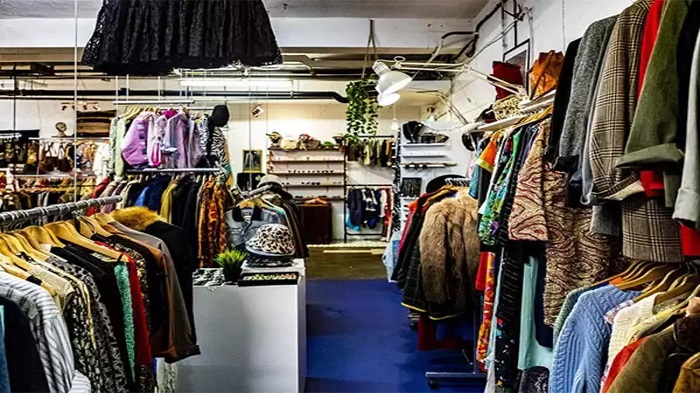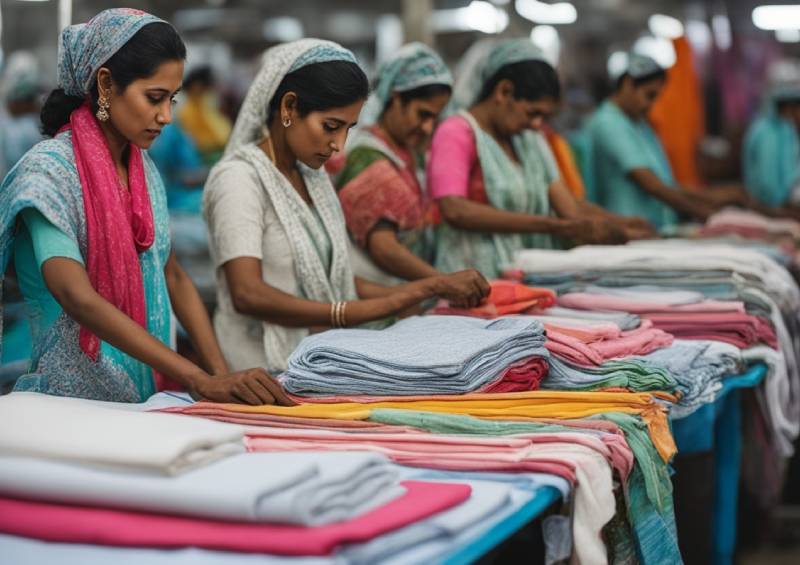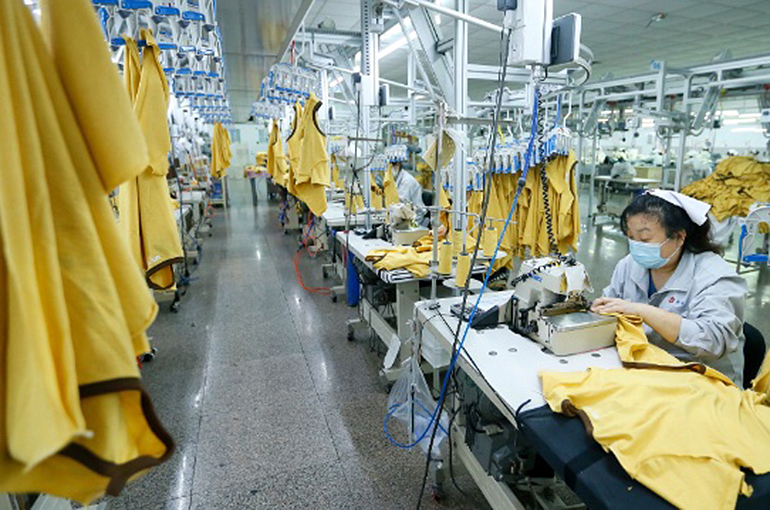"Manchester used to be the hub of Britain’s textile trade even before it became a hub for fast fashion. Boohoo, Missguided and In The Style are just some of e-tailers headquartered there today but at the time of the Industrial Revolution, the city’s red-brick buildings were home to cotton mills. Like every country, mills started shutting down one after another as retailers found cheaper alternatives to British cotton in India and China."

Manchester used to be the hub of Britain’s textile trade even before it became a hub for fast fashion. Boohoo, Missguided and In The Style are just some of e-tailers headquartered there today but at the time of the Industrial Revolution, the city’s red-brick buildings were home to cotton mills. Like every country, mills started shutting down one after another as retailers found cheaper alternatives to British cotton in India and China. The last mills closed its doors in early 1980s but after years of absence, cotton spinning has now returned to Manchester.

Following a £5.8 million investment – £2.8 million of its own investment, £2 million from the Greater Manchester Combined Authority’s investment fund and £1million from the government’s Textiles Growth Fund – technical textiles company Culimeta-Saveguard launched English Fine Cottons in 2015. Test production at its Dunkinfield mill started in July 2016 and in last December, it opened for business. Tracy Hawkins, Business Development Manager, Dunkinfield says while they didn’t start the factory with the intent to revive the UK textile industry, a lot of thought went into opening the mill and they thought it was a good investment because of changes in the market. The project came to fruition just before Brexit. Retailers are worrying about the cost of bringing in raw goods from overseas while exchange rate is another concern. The exchange rate works in their favour when they are selling abroad and there are a lot of international markets, particularly Japan, that are interested in British heritage and quality.
Growing cotton production
The campaign ‘Make it British’ found average production was up 25 per cent and half of the 100 fashion and textile manufacturers surveyed recoded a turnover increase in 2017 compared to 2016. However, Britain’s decision to leave the European Union could provide a further boost. Kate Hills, a former buyer for Marks & Spencer and Burberry and founder, Make it British, says Brexit is an opportunity for textiles reshoring. Locally sourced yarn means retailers aren’t at the mercy of currency fluctuations or economic disasters in cotton-sourcing countries, and everyone is looking for less trouble in their supply chain. However, the biggest challenge is still finding the right skills. Hawkins points out it is the quality of the mills’ cotton, rather than speed to market, that proved to be the biggest draw for brands and retailers.
Data suggests there are opportunities for British textiles but there is still a long way to go before the scale of the industry can match up to its counterparts. Currency swings and the opportunity to have a stronger grip on supply chains make UK textiles tempting for retailers but higher prices, skills gaps and the industry’s small scale are still posing problems.











